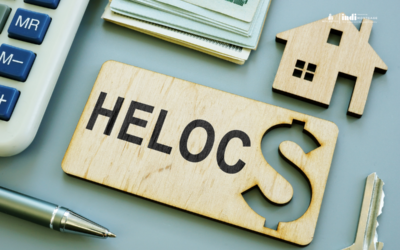Welcome To Our Mortgage Educational Blog About:
Your Guide To Buying Your First Home

Buying a home can be a daunting task for a first-time homebuyer. The process is lengthy, you are likely to be emotionally charged, and there is a real fear of making an expensive misstep along the way.
This step-by-step guide shows you what to expect so you can close on your dream home smoothly.
While you probably can’t wait to begin looking at houses, this is not the first step. Before anything else, save up a significant down payment. In Canada, this is roughly between 5% and 20% of the purchase price.
The larger the down payment, the lower your mortgage amount; consequently, your repayments will be more manageable. So put away as much as possible.
2. Save Up For Closing Costs
Besides the down payment, you will need to sort out closing costs upfront. These include:
- Land transfer taxes
- Title insurance
- Legal and home inspection fees
- Mortgage default insurance
- PST on mortgage default insurance
- Home inspection
These generally amount to 1.5% to 4% of the property’s purchase price.
This step helps you get your documentation in order and sort out your finances to determine how much house you can afford.
Let’s look at these in detail.
Get Your Credit Score
Lenders typically use credit scores to determine how likely you are to repay monies loaned to you. You can get yours from Equifax or TransUnion.
If your score is too low, you might want to shelve your house-buying idea for a while as you take steps to improve your credit score.
Get Your Documentation In Order
Lenders will look at your income, debt level and other assets you own before extending a mortgage facility.
Towards this endeavour, lenders are likely to ask for;
- Government-issued Identification (passport, driver’s license)
- Proof of employment and income (documents like pay stubs, income tax returns, T4 and bank statements will do)
- Information about other owned assets
- Information regarding your debts and other financial obligations like child support
- Proof of your down payment and the source of funds
4. Work On Mortgage Pre-Approval
With a down payment and closing costs saved up, and your documents in order, the next step is figuring out how much you afford.
You can use online mortgage calculators to compute this or approach a mortgage lender to get pre-approved. With the latter, a mortgage lender reviews your documents and determines how much they would lend you. They also tell you at what interest rate.
5. House Shopping
Finally, the fun part!
At this point, you should have all your ducks in a row regarding house purchase. And you can reward yourself by looking at houses- within budget, of course.
Parting Shot
The process of buying a house can be pretty unnerving. At Envolve Mortgage Group, we have years of experience negotiating first-time homebuyers mortgages for our esteemed clients.
Our job is to take some stress off your shoulders and use our expertise to get you the best deal on your new abode. So call us today, and let us do what we do best.
Are you ready to purchase your first home? Reach out to me directly or start your application here: www.sandraforscutt.ca/mortgage-application/
Don’t hesitate to contact us with any questions you may have.
Recent Educational Blogs
Smart Steps for First‑Time Home Buyers in Canada
Feb 2026 | Smart Steps for First‑Time Home BuyersBuying your first home is one of life’s most exciting milestones—but it can also feel like stepping into uncharted territory. Between saving, budgeting, and securing financing, there’s a lot to think about before you...
First Responder Mortgage Program
Jan 2026 | First Responder Mortgage ProgramAt Metro Mortgage Group, we have deep respect for the everyday heroes of our city — the members of the Edmonton Police Service, EMS, and Fire Rescue Services. Your commitment keeps our community safe, often at great personal...
Pros and Cons of a Home Equity Line of Credit (HELOC)
Dec 2025 | Pros and Cons of a Home Equity Line of Credit (HELOC)If you’re a Canadian homeowner, you’ve probably heard friends or family talk about using a home equity line of credit, or HELOC. People often use it to renovate, consolidate debt, or help kids with school...



